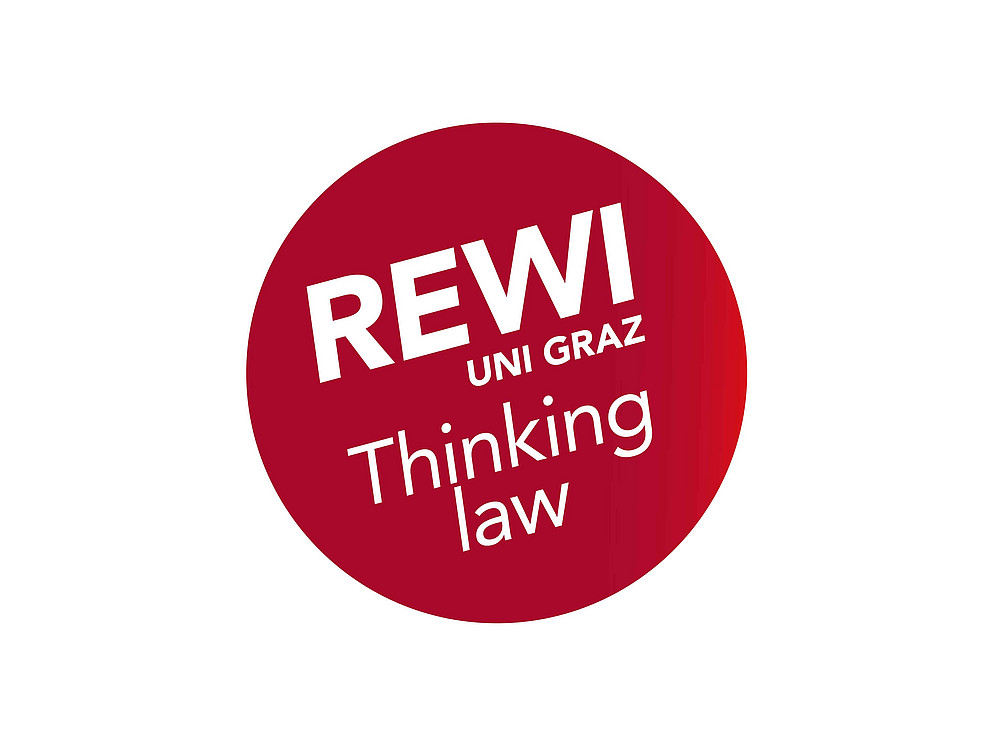Nostrifications
Nostrification is the equivalence of a foreign degree with an Austrian degree with the entitlement to use the academic title "Magister / Magistra der Rechtswissenschaften". The law degree completed abroad must be fundamentally comparable to the Austrian degree and, in particular, like the Austrian diploma degree in law, have a standard duration of at least four years and at least 240 ECTS credits. It is not permitted to submit the application for nostrification to several universities at the same time.
An alternative for certain groups of people is provided by the Federal Act on the Recognition of Training and the Reciprocal Recognition of Professional Examinations for the Legal Professions. In principle, one option may also be an assessment of qualifications by the Federal Ministry of Education, Science and Research.
Legal basis/requirements
Legal basis: § 90 of the Universities Act, § 42 of the Statutes of the University of Graz
Nostrification must be mandatory for the applicant to exercise his/her profession or continue his/her education in Austria, i.e. an Austrian or equivalent degree must be required by law for the applicant to take up his/her professional activity or education in Austria. However, if there is no admissible reason for nostrification, an assessment of the qualification by ENIC NARIC AUSTRIA may be possible in principle.
The law degree completed abroad must have a standard duration of at least four years and 240 ECTS. Nostrification is only possible if the law degree course completed abroad is equivalent to the diploma degree course in law at the University of Graz in terms of the result of the overall education. If equivalence exists in principle, but not in full, supplementary examinations under Austrian law may be imposed to establish full equivalence.
See also: Federal Act on the Recognition of Training and the Reciprocal Recognition of Professional Examinations in the Legal Professions (Training and Professional Examination Recognition Act - ABAG); Section 3 of the Lawyers' Code of Conduct.
Which supplementary examinations are imposed in order to achieve full equivalence in the case of fundamental equivalence is assessed on a case-by-case basis. This also applies to the deadline within which the examinations must be passed. All examinations must be taken in German.
As a rule, the following supplementary examinations under Austrian law are required at the University of Graz in the course of a nostrification procedure in order to establish full equivalence if the foreign degree programme is basically equivalent:
- written lecture examination from the subject "General Part of Civil Law, Law of Obligations, Property Law, Fundamentals of Private International Law"
- oral lecture examination from the subject "Constitutional Law"
- written lecture examination from the subject "Administrative law, fundamental rights and legal protection"
- Written lecture examination from the subject "Substantive Criminal Law and Criminal Procedure Law"
- Course "Case solution in criminal law and criminal procedure law"
- Oral lecture examination from the subject "Fundamentals of corporate law with consideration of intellectual property"
- Oral lecture examination from the subject "Legal forms of entrepreneurial activity"
- Course "Corporate Law"
- Oral lecture examination from the subject "Individual and Collective Labor Law"
- VU "Social Law"
- Written lecture examination from the subject "Financial constitutional law, budget law and tax law"
- Course "Law of Obligations/Property Law/Private International Law"
- VU "Inheritance law"
- VU "Family Law"
- VU "Constitutional Law 1: Constitution and State Practice"
- Course "Constitutional Law 2: Fundamental Rights and Protection of Fundamental Rights"
- VU "Administrative law: application practice and cases"
- Oral lecture examination from the subject "Civil Procedure and Insolvency Law"
- VU "Applied Civil Procedure Law"
- written lecture examination from the subject "European Law", unless an equivalent examination was taken abroad
- Diploma thesis
- Commissioned oral diploma examination
They must be taken at the University of Graz as part of an extraordinary degree programme. If the completion of courses and VU is imposed, the general provisions on courses with an examination-immanent character (e.g. compulsory attendance) apply.
The foreign degree can only be nostrified after all supplementary examinations have been passed within the prescribed period.
Please contact us in advance by e-mail
The following must be submitted with the application
- Application for nostrification
- credible evidence of the purpose for which the nostrification is sought
- Current passport (serves as proof of current citizenship)
- Marriage certificate or similar documents relevant to civil status (only if the names are not identical on all documents to be submitted)
- Degree diploma / diploma certificate
- Certificates as proof of the individual examinations passed and approved academic work
- Curriculum/proof of the content, structure, duration and scope of the completed degree program
- curriculum vitae
- Confirmation of payment of the nostrification fee (currently € 150)
- Proof of conversion of the grades and credits shown on the certificate (if no ECTS but other units are shown).
- Further documents may be required in individual cases.
Form
- For foreign-language certificates (exception: English): original translation into German or English prepared by a sworn and court-certified translator - the original translation must be firmly attached to the original certificate or a certified copy thereof.
- Certifications, if required: Foreign documents must be certified in accordance with the international treaties and agreements with Austria or the European Union applicable to the respective country of issue or in the latest version of the certification list (higher education) of the Federal Ministry of Education, Science and Research.
Further documents must be submitted on request.
The nostrification fee is currently € 150.00 and must be paid in advance. It expires if the application for nostrification is rejected or withdrawn and can no longer be refunded. If students are required to take examinations and/or write an academic paper, the tuition fee must be paid until these requirements have been met in full.
In addition, there are usually costs for translations and/or certifications.
